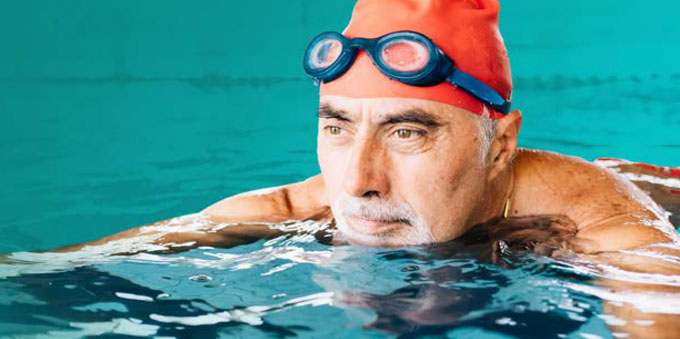An active lifestyle has many benefits for your health and mental wellbeing but as you get older it’s important not to put too much stress on your hips and knees. There’s no reason to give up on your favourite sports and exercise but there are things you can do to reduce the chance of injury.
Wear and tear on your joints
Your hips and knees are sturdy joints and can last a lifetime if you look after them well. But as the UK population ages, the number of people having hip replacement surgery and knee replacement surgery is on the rise. Around 160,000 hip and knee replacements are performed in England and Wales each year, and both technology and techniques have advanced over the years to make the procedure more successful and longer-lasting. This is having a considerable impact as today a growing number of people under 60 need hip and knee replacements.
As you age, the muscles, cartilage and bones supporting your joints can change and weaken. High-impact activities that had no adverse effect in your 20s or 30s can start to cause problems as you reach your 40s and 50s. Your body can’t always keep up the same level and type of activity as it used to and you may find painful conditions such as bursitis (inflammation of the fluid-filled sacs that cushion your joints) develop as a result.
Modifying your activities
To look after your hips and knees, as well as your ankles and other joints, it may be time to consider making some changes to your choice of activities. Rather than running, which is jarring for your joints, consider cycling, swimming, going for a brisk walk or rowing. These are all activities that will give you a good cardiovascular workout while reducing the strain on your joints.
If you want to continue running, make sure you’re giving your joints the best chance of standing up to the task. Get a good pair of running trainers and consider orthotic insoles to help absorb any impact. It’s worth seeing an expert such as a physiotherapist, personal trainer or sports coach to have your running style assessed and find out if there are any changes you can make. Using a treadmill or cross trainer will put less stress on your body than running outside.

Health and lifestyle
Your weight will have an impact on the amount of stress placed on your joints. Changes in your body as you age may mean that you are carrying more weight than you used to. If you’ve noticed some weight gain and want to exercise to combat it, don’t go straight into running or other high-impact activities as you could do more harm than good.
You’ll need to take any health conditions into consideration, as well as previous injuries and your current fitness level. Speak with your GP if you’re not sure about how much or what type of exercise is good for you. Start gently with low-impact pursuits such as swimming or cycling. It’s worth having a session with a personal trainer at your local gym as they can help you put together an exercise programme that will suit your body and lifestyle. They will also make sure you warm up and cool down properly, which will help protect your muscles and joints.
Small changes can make a big difference
Whether it’s changing the type of exercise you do, where you do it, how you do it, or the amount you do, a small change can often be enough to give your joints a better chance at staying healthy for longer. It’s easy to get into bad habits with exercise when you’re young and fit — habits that will come back to bite you as you age. Do you always warm up and cool down properly every single time? Make sure you’re doing things right. Two or three rest days each week will also give your joints a chance to recover.
When to see a specialist
If you have hip or knee pain don’t just ignore it and hope it will go away. Diagnosing the cause early means a better chance of successful treatment. There are a number of treatments we can offer before knee or hip replacement becomes necessary, so don’t let a fear of potential surgery put you off seeing a doctor.
If you have hip or knee pain we’ll run diagnostic tests and scans to determine the problem and then put together a personalised treatment plan. You may need an X-ray, CT scan or MRI scan to help us find the exact problem.
Treatments include anti-inflammatory injections, extracorporeal shockwave therapy (where soundwaves are passed through the skin to the injured part of the hip) and hip replacement surgery or knee replacement surgery. We also have physiotherapists and sports physiotherapists who can help you with a personalised treatment plan.

